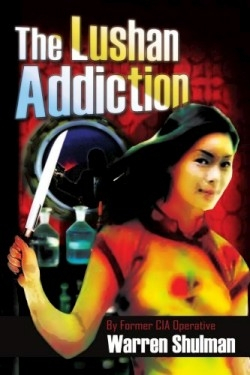The Lushan Addiction
‘…does the pill make anyone sick? Are there any adverse side effects?’
‘Don’t know. Workers happy’ the man smiled. ‘That good side effect no?’
The Lushan Addiction is a briskly-paced thriller focused on the under-covered subject area of industrial espionage in an era of market-driven free trade. St. Louis manufacturer West Lambert a CIA agent in his youth is reactivated to temporary duty in China. A microchip factory in the town of Lushan has found a way to boost productivity to the stratosphere while completely eliminating defects. West must learn how the gains are achieved before a cutthroat Japanese pharmaceutical company does in order to protect American chip makers and the manufacturing sector in general. Arrival in Hong Kong stirs up bittersweet memories of Bergita a Sino-British dance-bar owner and the one great love of his life. The aftereffects of West’s earlier tour of southeast Asia go beyond the romantic. A powerful enemy from the not-so-secret opium wars of Laos learns West is in the region and hatches his revenge.
Back in the States a cartel-connected drug lord becomes a prince of the boardroom and other businessmen profit from a legal but dangerous drug. All interested parties are in favor of wringing more work out of their labor force by any means possible. The line between criminal and legitimate worlds is invisible: “On the desk were two phones one with multiple lines connecting him to his corporate world. The other was … his lifeline to the underworld of spies and serious men who would kill a man with no compunction.”
A subplot involving West and a much-younger woman from Lushan moves in a refreshingly unpredictable direction. The actions of the villain Shih Liping and the team of Japanese rivals are also stimulating. Slug lines head each chapter stating the location of the action which changes regularly and the time which is almost always the annoyingly useless “Present.” Readers will need to keep track of the calendar themselves. Characterization is sufficient but levels of inner conflict are less than proportional to the ethical and safety implications of the drug the story pivots around. Perhaps that is a reflection of the relativistic life-view spies must have to follow orders that there is not a strong moral center operating.
Warren Shulman was a Central Intelligence operative in Southeast Asia during the Vietnam War. He kept the American government apprised of Mao Tse-tung’s intra-party conflicts using embedded sources. Later in his hometown of Atlanta Shulman made a name in civil litigation and competed with Andrew Young in a 1981 mayoral primary election. The author disclaims a basis in specific real events but the flashback sequences set in Hong Kong and Laotian Plain of Jars carry the ring of authenticity. The Lushan Addiction will satisfy most readers of the genre.
Disclosure: This article is not an endorsement, but a review. The publisher of this book provided free copies of the book and paid a small fee to have their book reviewed by a professional reviewer. Foreword Reviews and Clarion Reviews make no guarantee that the publisher will receive a positive review. Foreword Magazine, Inc. is disclosing this in accordance with the Federal Trade Commission’s 16 CFR, Part 255.

